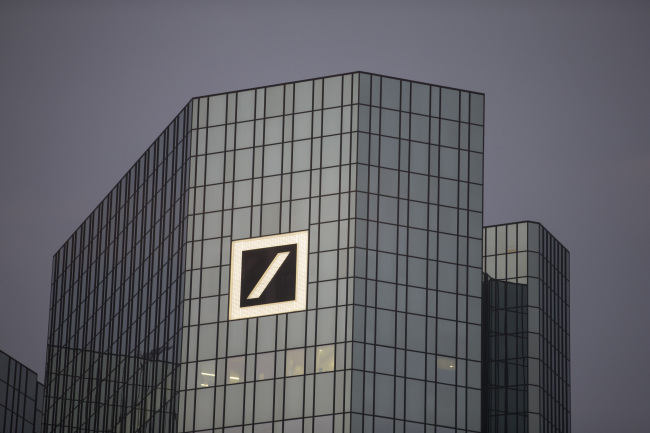On Nov. 11, 2010, with just 10 minutes for the stock market to close in Seoul, three traders in Hong Kong dumped 2.4 trillion won ($2 billion) worth of Korean shares, triggering a 2.7 percent drop on the country’s main KOSPI index.
The massive and coordinated sell-off by Deutsche Bank employees wiped out 28 trillion won in value from Korea’s equity market, but those involved in the transaction made a combined profit of 44.9 billion won through derivative positions they had arranged in advance.
More than five years later, a Seoul court delivered Monday the first verdict in the case, locally referred to as “the Nov. 11 options shock.”
The massive and coordinated sell-off by Deutsche Bank employees wiped out 28 trillion won in value from Korea’s equity market, but those involved in the transaction made a combined profit of 44.9 billion won through derivative positions they had arranged in advance.
More than five years later, a Seoul court delivered Monday the first verdict in the case, locally referred to as “the Nov. 11 options shock.”

Saying that Deutsche Bank illegally manipulated stock prices, the court fined its local unit Deutsche Securities Korea 1.5 billion won and sentenced a Korean employee to five years in jail, on top of confiscation of the illicit proceeds.
“What the defendants have done is a grave crime against the market and it dented investor confidence,” said judge Shim Gyu-hong of Seoul Central District Court in the ruling.
Deutsche traders drove down stock prices on the expiration day of the put options they held in order to reap more profits from the derivative products. A put option, which allows the holder to sell shares at a specific price until expiration, gains in value when the market falls.
Park, the Korean man sentenced to jail, conspired in the market manipulation by deliberately delaying the filing of a required report on the options’ expiry by one minute, the judge said.
Park plans to appeal, his attorney said.
Monday’s verdict, however, falls far short of bringing Derek Ong and the two other traders in Hong Kong who led the sell-off to justice. Trials for the three are on hold, as the Korean authorities have failed to identify their whereabouts. They are citizens of the U.K., France and Australia, and have left Deutsche.
Deutsche’s Korean business and reputation suffered a major blow from the scandal, but it seems to be on the path to recovery now.
Shortly after the market rout, the financial regulator imposed a six-month suspension on some operations of the bank, the heaviest penalty it had ever imposed on a financial company.
While still weak in stockbroking, the investment bank now leads in M&A advisory services in Korea, landing six major deals worth over 6.6 trillion won in 2015.
On Korea’s derivatives market, however, the scars left by Deutsche are still raw.
The market, which in 2011 was the world’s largest by trade volume on heavy retail investor activity, shrank sharply after the government tightened rules in response to the 2010 event.
“The Deutsche Bank case also prompted local investors to look anew at the derivative market, particularly at the risks involved,” said an industry official.
Derivatives contracts dropped to 790 million in 2015 from 3.9 billion in 2011.
According to the financial regulator, domestic investors incurred losses amounting to 140 billion won from the case. Some of them filed civil suits against Deutsche, of which four are still pending. In November last year, the German bank was ordered to pay 28 billion won in damages to five local financial institutions.
Deutsche Bank, in response to Monday's verdict, said it “respectfully acknowledges the court’s decision.”
“Deutsche Bank has strengthened its systems and controls and is committed to compliance with applicable laws and regulation in all jurisdictions and to making a positive contribution to the development of Korean financial markets,” Michael West, a Hong Kong-based spokesman for the parent company, said in an emailed statement.
By Lee Sun-young & news reports
(milaya@heraldcorp.com)








![[KH Explains] How should Korea adjust its trade defenses against Chinese EVs?](http://res.heraldm.com/phpwas/restmb_idxmake.php?idx=644&simg=/content/image/2024/04/15/20240415050562_0.jpg&u=20240415144419)










![[Today’s K-pop] Stray Kids to return soon: report](http://res.heraldm.com/phpwas/restmb_idxmake.php?idx=642&simg=/content/image/2024/04/16/20240416050713_0.jpg&u=)